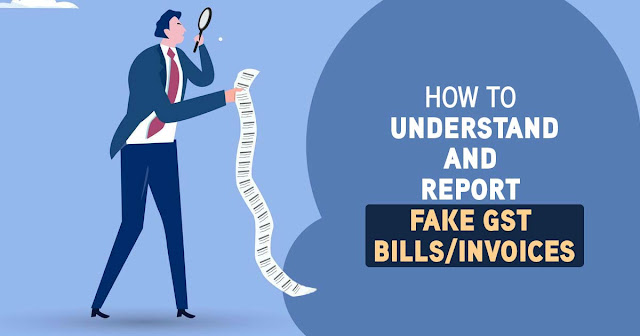The GST bill refers to the document that shows the tax information on certain transactions consisting of goods or services. GST is a complete indirect tax imposed on the supply of goods and services at every production and distribution chain phase. It acts as proof of tax paid on certain transactions and is an important document for businesses and people concerned with buying or selling goods and services.
GST execution in various countries has eased the taxation regime, which makes it more clear and efficient. There is always a risk of bogus activities with any system along with the making and circulation of the bogus GST bills. Acknowledging and reporting these bogus bills is important to maintain the GST system's integrity. The GST bill elements comprised of-
- Understanding the GSTIN for Businesses: The GSTIN, a distinctive identifier for businesses under GST registration, aids in taxpayer identification and tracking.
- An Important Factor in Transaction Records for Invoice Number and Date: Each GST bill is allocated a unique number and transaction date for identification.
- Supplier and Recipient Details: Details of the supplier (seller) and recipient (buyer), encompassing names, addresses, and respective GSTINs.
- Goods or Services Description: Comprehensive particulars of the goods or services provided, specifying quantity, unit price, and total value.
- HSN or SAC Code: Codes facilitate the categorization and taxation of goods or services, ensuring consistent classification and taxation procedures.
- Taxable Value: The goods or services value where the GST is been computed. It excludes additional charges such as discounts.
- Tax Break: As per the type of transactions the GST is been classified into Central Goods and Services Tax (CGST), State Goods and Services Tax (SGST), Integrated Goods and Services Tax (IGST), or Union Territory Goods and Services Tax (UTGST).
- Total Amount Taxable Value for GST: The total amount along with the taxable value as well as the applicable GST.
GST bills hold immense importance for businesses to obtain input tax credits, allowing them to claim credits for taxes paid on their purchases. Moreover, they serve a pivotal role in maintaining transparency, compliance, and accountability throughout the supply chain of goods and services within the taxation system. Businesses and individuals must maintain precise and legitimate GST bills as they undergo audits, and accurate documentation is imperative to meet tax regulations. Here are steps to report a fraudulent GST bill:
- Inform GST Authorities Promptly: Report any suspicions or concerns immediately to the relevant GST authorities, offering detailed information like GSTIN, invoice specifics, and any relevant details.
- Use Online Reporting Platforms: Several countries offer secure online avenues for reporting GST bill-related fraudulent activities. Utilize these platforms to submit evidence and information securely.
- Engage with Other Stakeholders: Collaborate with fellow businesses, suppliers, and customers to exchange information about suspected fake GST bills. Joint vigilance can bolster the capability to detect and report fraudulent activities.
- Collaboration with Law Enforcement Authorities: If needed, cooperate with local law enforcement agencies. They can conduct further investigations and initiate legal action against individuals involved in producing counterfeit GST bills.
- Monetary Consequences: The issuance or utilization of counterfeit GST invoices frequently carries financial penalties. The penalty amount can be a percentage of the tax applicable in the fraudulent transaction or a fixed sum determined by the tax department.
- Revocation of GST Registration: Businesses discovered to be guilty of issuing fake bills may have their GST registration cancelled by the tax authorities. This step can have serious ramifications for the business, potentially affecting its legal operational capabilities.
- Legal Proceedings and Prosecution: Alongside monetary fines and charges, tax officials can take legal actions against individuals or businesses practising fake GST bill creation and usage. This can result in criminal charges, fines, or even imprisonment, depending on the gravity of the offence.
- Loss of Input Tax Credit (ITC): Businesses discovered using fake GST bills to demand illegitimate input tax credits (ITC) may end up losing such credits. This can lead to financial losses and an increase in tax obligations.
- Blacklisting: Tax authorities have the option to blacklist businesses engaged in fraudulent practices, making it challenging for them to conduct legitimate transactions or participate in government contracts.
It's crucial to recognise that penalties and outcomes can differ significantly, depending on the location, so businesses need to understand the regulations within their area. Tax agencies frequently carry out probes and audits to uncover fake GST bills, and failing to comply can lead to serious repercussions. To steer clear of penalties and legal issues, businesses and individuals need to follow correct invoicing protocols, keep precise records, and stay updated on tax regulation modifications. If there are doubts about the validity of a GST bill, it's wise to promptly notify the tax authorities.


Comments
Post a Comment